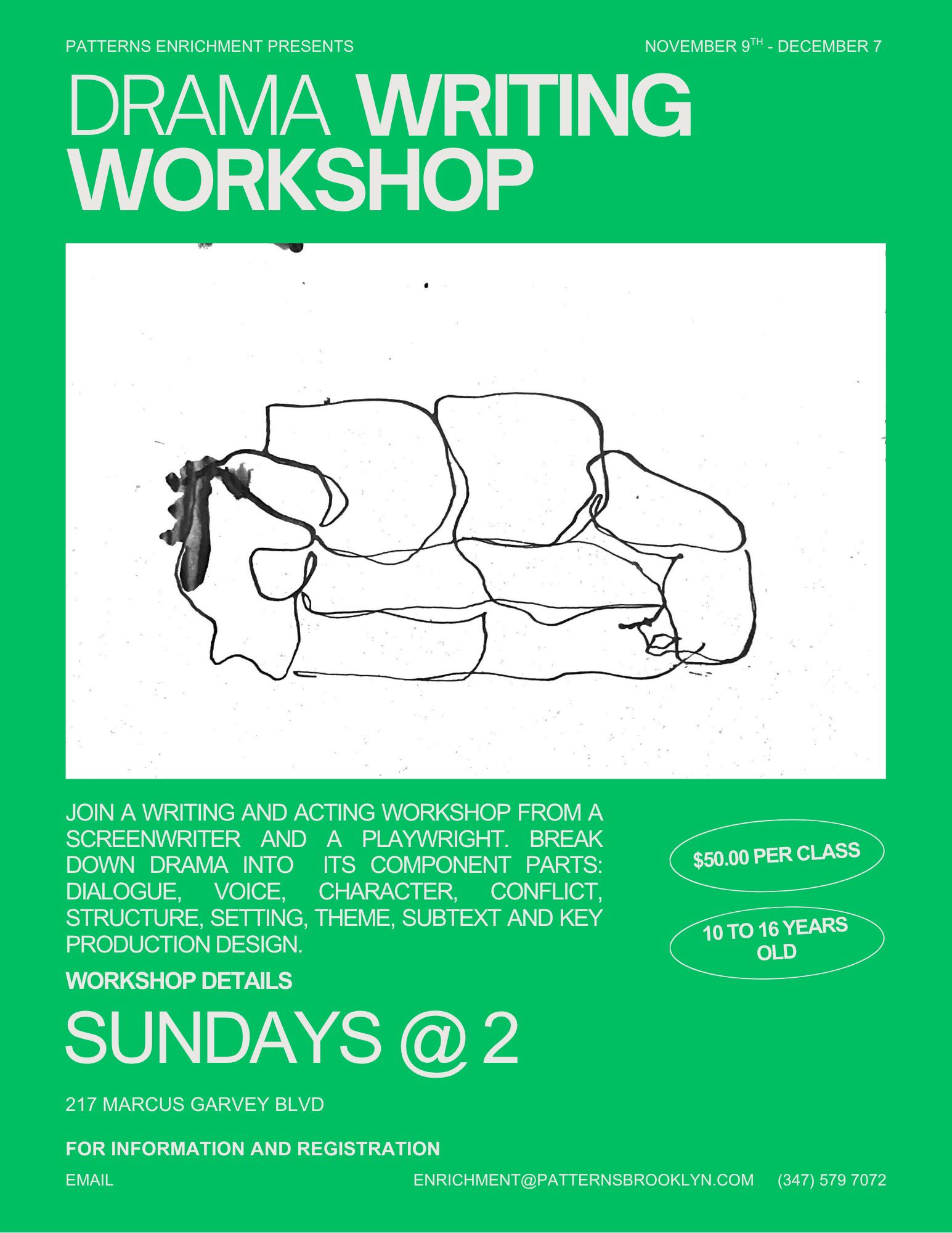Drama Writing Workshop

Instructors
Isaac Soloway-Strozier & Luca Milstein
Course Overview
This class introduces students to drama as both literature and performance. We will study film, plays, and dramatic writing to understand how stories are built for performance — how conflict, character, and dialogue work together. Students will practice their own writing through games and guided exercises, culminating in short monologues or scenes they will perform.
Learning Goals
By the end of the program, students will:
• Understand the core elements of drama (character, conflict, dialogue, setting, subtext).
• Gain practice in dramatic writing through short exercises.
• Experience how writing changes when spoken and performed.
• Collaborate in giving and receiving feedback.
• Hone their public speaking skills.
• Present an original dramatic piece in a final showcase.
Weekly Breakdown
Week 1: What is Drama?
• Introductions and games.
• What makes a play different from a story or novel?
• Read short excerpts aloud (comic and dramatic).
Week 2: Dialogue & Voice
• Explore how dialogue tells a story.
• Read short play or film excerpts with different voices.
• Exercise: write a conversation between two characters who want different things.
• Share aloud and reflect.
Week 3: Character & Conflict
• Study a short scene focusing on conflict.
• Identify: Who are these characters? What do they want?
• Writing exercise: create a character with a secret or strong desire.
• Students share short character sketches.
Week 4: Structure & Setting
• Learn about beginnings, middles, and ends in scenes.
• Discuss setting: how does where a play happens shape what happens?
• Group exercise: imagine a scene in different locations.
• Students draft short scenes in specific locations.
Week 5: Theme & Subtext
• Read and discuss a short scene with hidden meanings.
• Exercise: write dialogue where the characters are saying one thing but meaning another.
• Begin revising student-written monologues or scenes with instructor feedback.
Week 6: From Page to Stage
• Students hear their work read aloud by classmates.
• Introduce performance basics: stage directions, reading with emotion.
Week 7: Rehearsal
• Students rehearse their own original pieces.
• Practice projection, movement, and listening onstage.
• Run-through of showcase material with instructor guidance.
Week 8: Final Showcase
• Warm-up and rehearsal.
• Performance for friends and family: each student presents one short monologue or scene they’ve written and rehearsed.
